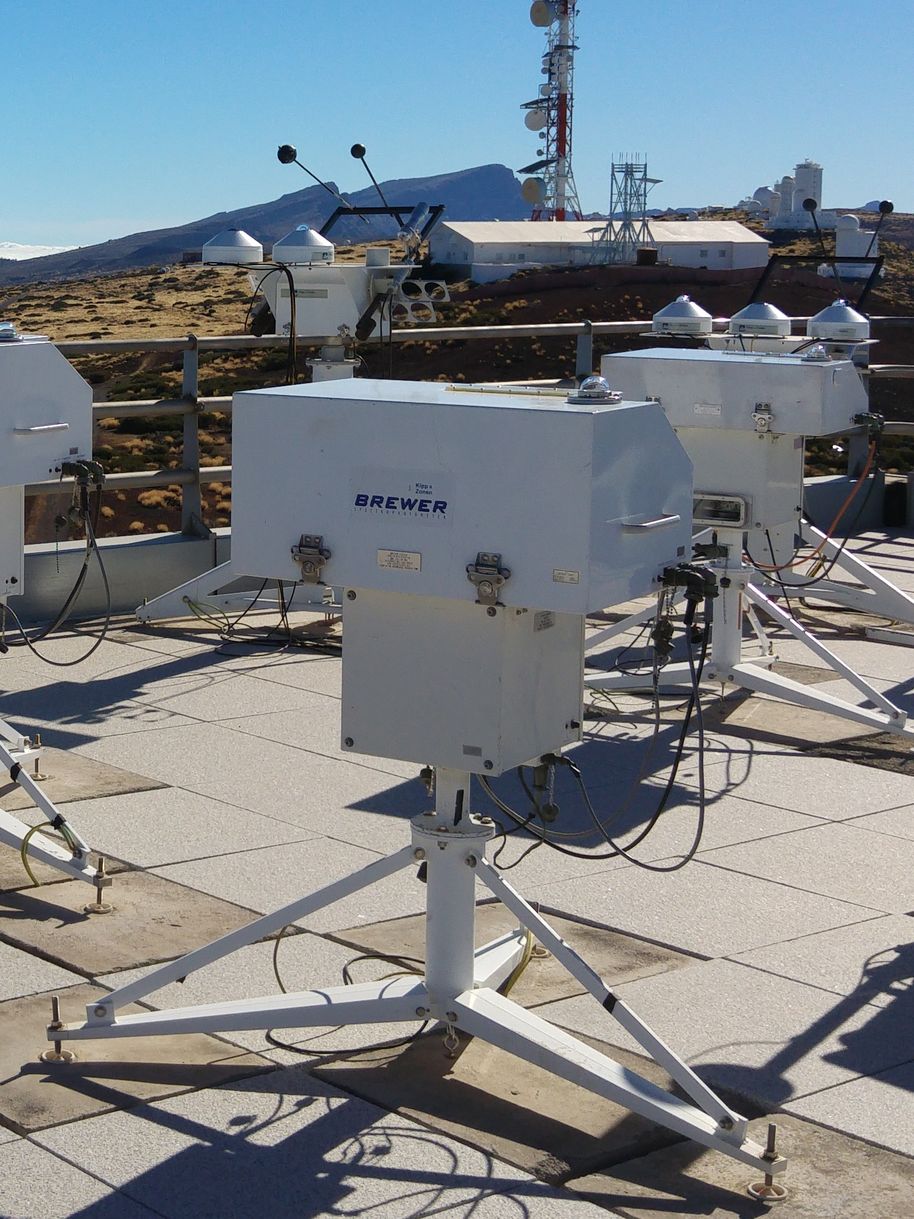ATMOZ project (2014-2017)
Background
The aim of the project was to improve the reliability of atmospheric ozone measurements by characterizing instruments of existing ozone monitoring networks, by developing new devices, and by producing new datasets as well as a comprehensible uncertainty budget for ozone retrieval algorithms. Since the ozone layer protects the earth from solar ultraviolet (UV) radiation that is largely responsible for skin cancers, accurate monitoring of ozone layer is vital for health and well-being of humans.
The key activities of Metrology Research Institute in this project are listed below.
Stray-light characterization of Brewer spectrophotometers
Brewer spectrophotometers are ground-based instruments that measure the thickness of the ozone layer. These instruments are distributed all over the world to provide extensive coverage for atmospheric ozone monitoring.

With Brewer instruments, the thickness of the ozone layer is determined by measuring the UV radiation at different wavelengths, some of which are strongly absorbed by ozone and some of which are not. Ideally, the results at one wavelength are only affected by incoming radiation from that wavelength. In practice, radiation from other wavelengths also affects the results to an extent. This effect is referred as stray light. Stray light is especially problematic in solar UV measurements where the signal levels relatively low compared to visible and infrared region, but accurate UV data are still required due to health considerations as well as for ozone layer thickness determination.
In the project, Metrology Research Institute studied the stray light properties of the Brewer spectrophotometer of Finnish Meteorological Institute (FMI) using a multi-laser setup. Stray light was studied in a wide wavelength range to see which how different wavelength regions affect the results of ozone measurements. The results of this study are published in article [1].
Uncertainty evaluation of ozone retrievals
Total Ozone can be determined from the spectral measurements of solar ultraviolet irradiance using an atmospheric ozone retrieval algorithm, where the solar spectrum measured in space is attenuated with the atmospheric model to match with the ground-based spectrum. The ultraviolet band is not easy to measure, and thus the spectral data of the retrieval may hide unknown systematic wavelength dependent errors [2, 3], i.e. spectral correlations. Omitting possible correlations may lead into underestimated uncertainties for derived quantities, since spectrally varying systematic errors typically produce larger deviations than traditional uncertainty estimations, where only noise-like variations are taken into account.

We have developed a Monte Carlo method [4] that takes unknown spectral correlations into account. With the method, we estimated the uncertainties of correlated colour temperature determined from our spectral irradiance scale [3]. Our new method gives realistic uncertainties for the ozone measurements, thus for example supporting the observations of long-term trends in climate change.
Contact persons: Anna Vaskuri and Petri Kärhä
More information about the project can be found at the project website:
http://projects.pmodwrc.ch/atmoz/index.php
References
[1] T. Pulli, T. Karppinen, S. Nevas, P. Kärhä, K. Lakkala, J. M. Karhu, M. Sildoja, A. Vaskuri, M. Shpak, F. Manoocheri, L. Doppler, S. Gross, J. Mes, and E. Ikonen, "Out-of-Range Stray Light Characterization of Single-Monochromator Brewer Spectrophotometers," Atmosphere-Ocean 56, 1-11 (2018).
[2] P. Kärhä, A. Vaskuri, T. Pulli, and E. Ikonen, "Key comparison CCPR-K1.a as an interlaboratory comparison of correlated color temperature," Journal of Physics: Conference Series 972, 012012 (2018).
[3] P. Kärhä, A. Vaskuri, H. Mäntynen, N. Mikkonen, and E. Ikonen, "Method for estimating effects of unknown correlations in spectral irradiance data on uncertainties of spectrally integrated colorimetric quantities," Metrologia 54, 524–534 (2017).
[4] A. Vaskuri, P. Kärhä, L. Egli, J. Gröbner, and E. Ikonen, "Monte Carlo method for determining uncertainty of total ozone derived from direct solar irradiance spectra: Application to Izaña results." (Submitted)






